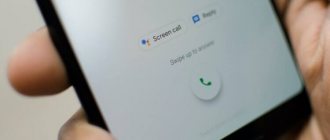Related sections: Fortune telling, By face
We have already examined the features of head shape, facial features and eye color. Now about the most interesting and difficult thing - the meaning of facial gestures. If all the previous sections were devoted to the details of the image, now we will look at dynamic processes, which, in fact, are much more complex and interesting.
How often do we notice that our interlocutors make certain characteristic gestures? They sometimes scratch their hair, grab their ears, and cover their mouths. Each such gesture has its own meaning. Facial expressions entirely reflect the internal state of a person: is he lying, is he comfortable, does he like what he says.
Once you master the technique of recognizing gestures, you will always distinguish lies from the truth and understand the real motives of your interlocutor. Where did his eyes go? Why did he curl his mouth like that? Did the cat really eat his annual report, was there really a traffic jam on Kutuzovsky? All this can become your secret weapon, since it will become difficult to deceive you. Moreover, this is an indispensable technique in negotiations, communication with a new partner or lover.
The science of interpreting facial gestures itself is enormous in scope. So it will not be possible to fully cover all the subtleties even in several books. There are more than fifty lip gestures alone. Therefore, we tried to select the most common, basic elements.
Man covers his mouth with his hand
When a person covers any part of his face, it is a defensive reaction. On a subconscious level, he protects himself from negative consequences. When a person covers his mouth with his hand, he does not want anyone to suspect anything in his words. Perhaps he is not telling the truth or is not sure of his words.
This gesture also means embarrassment, uncertainty, and tightness. Perhaps the person found himself in an unusual or uncomfortable environment. The same mechanism operates - protection from consequences. Many people try to cover up their laughter - this is one of the manifestations of tightness.
Interesting point. A similar mechanism works when someone else lies or avoids answering. If you tell something to a person, and he covers his mouth with his hand, then most likely he does not believe you or does not trust some words.
The myth of scratching your nose.
The most popular question is: if a person scratches his nose, did he lie or not? When dealing with it, remember that if a person scratches his nose, this does not mean he is lying!
Firstly, in order to draw at least slightly substantiated conclusions, you need to determine the moment of scratching your nose, and secondly, how the person did it. After all, if your nose really itches, you usually scratch it with the outside of your arm or palm. Otherwise, it will be a light touch, not at all intended to scratch the nose.
In addition, you always need to take into account the context. Firstly, a person may suffer from allergies or simply feel anxious today. Many books advise not to touch your face too often, as they say it gives the impression that you are secretive. Although, in fact, a person who frequently touches his face may simply have an increased level of anxiety. After all, it is usually with the help of adapter gestures associated with touching and self-stroking of different parts of the body that a person normalizes his condition, calms down, that is, adapts to alarming or unpleasant situations.
Ask yourself: does it make sense for this person to deceive you right now? If your interlocutor scratched his nose while talking about the weather, probably not. It’s a completely different matter if we are talking about a so-called important verification issue. Again, even if the person touched his nose during the test question, or perhaps “sniffed” his nose (of course, if he does not have allergies or a runny nose), in which case it is premature to label him a liar. Just take note of his reaction and be sure to remember this question. Continuing the casual conversation, repeat the question again, but in a slightly different way, perhaps paraphrasing. That is, repeat the stimulus. And only if this reaction (stroking yourself, scratching, touching your nose) is repeated, can you talk about some probability that this person may be holding something back.
Repeating the need to take into account the context, it should be noted that people who are prone, for example, to drug addiction, often also “sniff” their nose, since this addiction provokes swelling of the wings of the nose, which causes such a reaction).
Source: Notes from a profiler. Anna Kulik...
Man holding his chin
There are several meanings of the gesture. About the most harmless thing is the habit of scratching your beard, they say it calms you down. Especially men who have grown a beard or stubble.
Another option is that the person is trying to hide some confusion in his head. Do you know the feeling when you can’t figure out the answer to a fairly easy question? This pause lasts a few seconds, but for you it turns into an eternity. You feel awkward. Indeed, sometimes you immediately gave the answer to more complex problems. Such moments happen to everyone and are associated with fatigue and exhaustion. Some people start scratching their beard, trying to cover up this pause.
What is rhinotillexomania
The term rhinotillexomania refers to the phenomenon of nose picking.
Photo by RODNAE Productions: Pexels
Moreover, here we are not talking about the physiological need to remove mucus that has dried during the day from the nostrils, because moderate picking is not evidence of any disorders. We will talk about rejecting the natural cleansing process, when the desire to “clean your nose” becomes obsessive and very difficult to give up. It's a kind of nose-picking mania.
In the United States, scientists Thompson and Jefferson conducted a study in 1995, during which an anonymous questionnaire was compiled, “Inserting a finger or other object into the nose to eliminate dried nasal discharge,” sent by mail. After processing, the following data was found:
- 91% of respondents pick their nose;
- 75% pick their nose daily;
- 22% pick their nose several times a day, of which:
- 55% devote 1 to 5 minutes a day to this activity;
- 23% - from 5 to 15 minutes a day;
- 2 people – from 15 to 30 minutes a day;
- 1 person spends 2 hours on this.
In psychology, rhinotillexomania does not refer to bad habits, various diseases and pathologies, as you might think, but to unhelpful actions. The latter are not usually considered as a disease or addiction, but they arise against the background of an imbalance in the nervous system.
Why do people eat boogers? Rhinotillexomania.
Interesting! Rhinotillexomania affects boys more often than girls.
Man looks away
If during a conversation a person often looks away, then he feels some uncertainty. An animal instinct is triggered, which can be observed in cats: what I don’t see is not there. Sound familiar?
If a person looks away before saying something, it means that he is choosing his words. At the same time, what is interesting. Looking down, he turns to memory, that is, he remembers some details. At the moment when a person looks up, fantasy works. This does not necessarily mean that he is ready to lie. Perhaps you asked a question from an area that the person has not encountered or has little experience with, so he analyzes his knowledge, begins to reason and turns on his imagination. Averted gaze to your left corresponds to speech, that is, a person is constructing sentences. Looking away to the side is a visual picture. A person represents something.
The myth about the direction of gaze.
This myth is based on the channels of ocular access, that is, an attempt to catch a liar, taking into account the direction of movement of his eyes. This technique is used in NLP and, with some “buts,” it can really be used.
Again, to avoid unnecessary labeling, one should take into account the individual characteristics that each person exhibits, and in particular their eye movements. If you are going to use this technique, first of all, pre-calibrate this person, try to understand the basic code of his ocular access. To do this, talk with him about some neutral topics.
That is, in a calm, casual conversation, ask your interlocutor a question, the answer to which there is simply no point in deceiving him. For example, ask him how he rested on the weekend. Your goal is to track the direction of his gaze when remembering, remembering what really happened. Please note that when recalling, the subject’s eye movements will not always correspond to those indicated in the known pictures. For example, he can look up, down or to the right. Your task is to remember this direction.
The next question can be asked about plans for a new weekend or vacation. Questions of this type help to track individual eye movements during fantasy, that is, lying. Because a lie is the same fantasy, imagination, although sometimes well prepared.
And only by taking into account all these individual characteristics, it is possible to create a working scheme for the personal ocular access of a given, specific person, and it can only be used with him, and in no case with anyone else.
Be sure to constantly recheck the effectiveness of the overall human eye movement pattern. Only individual work and calibration of a person’s reaction will make it clear whether this universal system is functioning or not. Often a person visualizes and remembers while looking in the same direction, which, if one trusts the standard scheme, can easily deceive.
Tense lips
If, after what has been said, a person tenses his lips, they rise slightly and protrude forward, then this means that the person himself is disgusted with what he said. Such a gesture can be compared to the words “what can we do?” Often this gesture is used when bad news is reported, or a person shares something that he does not like to say. Thus, he protects himself from negative influences from the recipient of information. After all, he had to say something unpleasant, which means he caused negative emotions.
Stages of formation of rhinotillexomania
Stages of transition from normal elimination of mucus from the nostrils to rhinotillexomania:
- At the initial stage, the child simply cleans his nasal cavity. Nothing special is happening here yet. This is a normal, harmless process.
Giphy
- A habit is formed. Prolonged exposure to this activity indicates a mental disorder or nervous shock. Due to improper care of the mucous membrane, the issue becomes aggravated.
- Worsening of the habit. This stage is formed against the background of an incorrect reaction from adults. They, as a rule, shame the child, scold him, laugh at him.
As a result of rash actions of adults in tandem with psychological factors and poor hygiene of the nasal cavity, an undesirable consequence occurs. Simple cleansing of the nostrils already turns into rhinotillexomania.
Psychological help
If this issue has moved from the stage of an unhelpful action into a bad habit, then it will not be easy to cope on your own. In this case, psychological help will be required. To get rid of rhinotillexomania, they usually use:
- group therapy;
- NLP;
Photo by Velizar Ivanov on Unsplash
- cognitive behavioral therapy;
- hypnosis.
The goal of a psychologist’s work is to weaken and subsequently eliminate shortcomings in the emotional, personal and behavioral sphere.
Rhinotillexomania is an antisocial process that begins in childhood. If you decide to get rid of him, then you can do this within several weeks, depending on his determination, the qualifications of the psychologist, and the intensity of the work.
How to correct rhinotillexomania
Nose picking is an antisocial phenomenon. It prevents you from adapting to society. You can get rid of it using the following methods:
- Keep your nasal cavity clean.
The nose should be rinsed with water. And as often as brushing your teeth.
Photo by Ernie A. Stephens on Unsplash
- Monitor the humidity level in the room.
This will keep the nasal mucosa moist.
- Trim your nails regularly.
With cut nails, it is difficult to remove dried mucus from the nasal cavity.
- When picking your nose, keep your hands busy and distracted.
If you notice a habit of picking your nose, but it didn’t exist before, analyze the events. Perhaps some changes have occurred, maybe you are nervous, tired, or something is bothering you. Try to solve the issue that led to rhinotillexomania.











